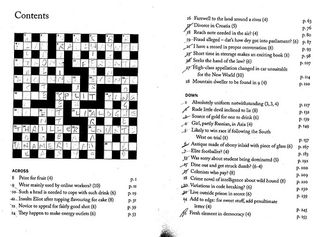Tech&Learning International
Latest about Tech&Learning International

Preparing for the new Computing curriculum: What if #5
By Terry Freedman published
I think this is great fun, and it started me thinking: would it be possible to devise a teaching resource about coding, say, which the pupils couldn’t access until they had learnt a bit of coding?

Preparing for the new computing curriculum: What if #4
By Terry Freedman published
What if you created a highly localised scheme of work?

11 Reasons to collaborate with other schools in implementing the new Computing Programme of Study
By Terry Freedman published
Many schools have a mindset perhaps best described as “splendid isolation” – except that there is nothing splendid about it.

Preparing for the new Computing curriculum: what if #3
By Terry Freedman published
Having the pupils work in small groups on finding and evaluating resources to use in a computing scheme of work could be quite useful.

Preparing for the new Computing curriculum: what if #1
By Terry Freedman published
I believe a lot of people are worried by the forthcoming Computing Programme of Study, judging by the number of people I’ve spoken to who say they have not yet begun to think about it.

ePals Announces Commercial Launch of New Learning Products in China
By Tech & Learning published
ePals Corporation today announced the commercial launch in China of a new product line for collaborative learning through its joint venture NeuPals

Preparing for the new Computing curriculum: what if #2
By Terry Freedman published
It’s also a bit overwhelming if you’re not sure where to start in the first place.

Companies Partner To Create Mobile Play And Learn Network
By Tech & Learning published
Samsung Electronics Co., Ltd. and Fingerprint today announced they are co-developing a kids' mobile app network enabling play-based learning for kids 3-to-7 years old.
Tools and ideas to transform education. Sign up below.

